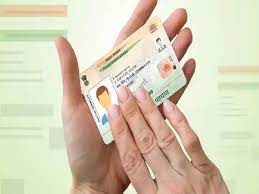In a recent development, the Unique Identification Authority of India (UIDAI) has issued a stern warning regarding updates to Aadhaar cards through email and WhatsApp. The UIDAI, which is responsible for the Aadhaar program, has expressed concern over the security risks associated with these methods of updating personal information. This announcement comes as a response to the growing number of individuals who have reported receiving messages claiming to be from UIDAI, asking for sensitive details through email and WhatsApp.
Heightened Security Concerns
The UIDAI’s cautionary statement underscores the heightened security concerns prevailing in today’s digital age. As technology advances, so do the strategies employed by cybercriminals. Scammers are becoming increasingly sophisticated in their attempts to gain access to personal data for malicious purposes.
According to UIDAI officials, emails and instant messaging platforms are not secure channels for updating Aadhaar information. The risk of falling victim to phishing attacks or having personal details compromised is significantly higher when using these methods. With email and WhatsApp being susceptible to hacking and unauthorized access, sensitive information such as Aadhaar numbers, addresses, and bank details could easily land in the wrong hands.
The Importance of Verification
UIDAI emphasizes the significance of using official and secure methods for updating Aadhaar details. Individuals are advised to only use the official UIDAI website or visit authorized Aadhaar enrollment centers for any updates or corrections. These channels ensure that personal information is handled with the utmost care and in compliance with stringent security protocols.
The warning extends to those who may have inadvertently shared their Aadhaar information through email or WhatsApp. Such individuals are urged to be vigilant about any suspicious activity related to their Aadhaar-linked accounts and to report any unauthorized access immediately.
Government Initiatives
In light of the rising concerns, the government of India is taking proactive measures to combat cyber threats and enhance data protection. The Ministry of Electronics and Information Technology is working closely with UIDAI to bolster the security of the Aadhaar ecosystem. Additionally, law enforcement agencies are cracking down on cybercriminals and scammers who target individuals through fraudulent communications.
The government has also launched awareness campaigns to educate citizens about safe online practices and the importance of verifying the authenticity of requests for personal information. These initiatives aim to empower individuals with the knowledge to safeguard their sensitive data effectively.
Conclusion
As the digital landscape evolves, ensuring the security of personal information has become a paramount concern. The UIDAI’s warning against using email and WhatsApp for Aadhaar updates serves as a crucial reminder for individuals to exercise caution and prioritize data protection. By adhering to official channels and adopting a vigilant approach to online interactions, citizens can contribute to a safer and more secure digital environment for all.
Remember, safeguarding your Aadhaar information is not just a responsibility—it’s a necessity in today’s interconnected world. Stay informed, stay secure!
























